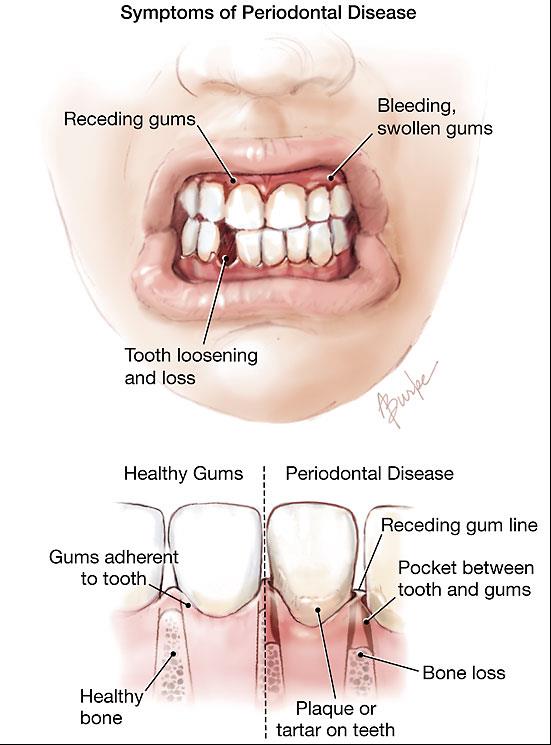Linking Poor Oral Health to Poor General Health
Periodontal Disease (gum disease) may contribute to other health risks. Periodontal Disease often begins with gingivitis, which is the mild inflammation of the gums. The signs and symptoms of gingivitis include; swelling, bleeding, redness and tenderness in the gum tissues. Gingivitis can be prevented by removing plaque through regular brushing and the use of dental floss. Plaque is a buildup of food and bacteria on the teeth. If plaque is not removed it can harden and becomes tartar. Tartar build-up can lead to a more serious infection is called periodontitis. Periodontitis can cause not only gum disease but the loss of teeth and bone. Smoking can contribute to the severity of periodontal disease, because smoking decreases the oxygen to the gums and makes them more susceptible to infections.
Evidence suggests that periodontitis may be associated with other systemic (whole body) diseases. For example, there is a known link between diabetes and gum disease. People with diabetes are more susceptible to gum disease and it can put them at greater risk of diabetic complications. Some research has found that periodontitis is associated with cardiovascular disease, stroke and bacterial pneumonia. Still other research suggests that pregnant women with periodontitis may be at increased risk for delivering babies that are pre-term, have low birth weight or both.
Given the potential link between periodontitis and systemic diseases, preventing periodontitis may turn out to be an important step in maintaining overall health. In most cases this can be done by good daily oral hygiene (brushing and flossing) and regular professional care. Make sure to tell your dentist about changes in your health including any recent illness or chronic conditions. Also provide your dentist with a medication list of both prescriptions and over-the-counter products.



 California Area Office
California Area Office